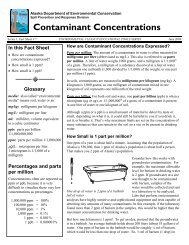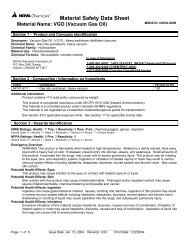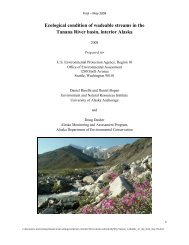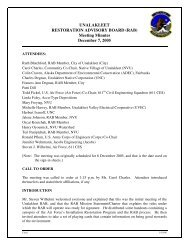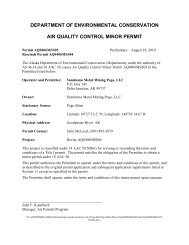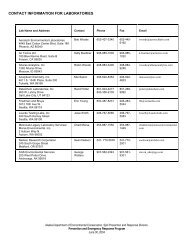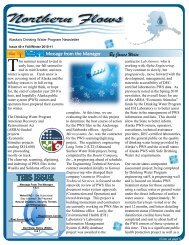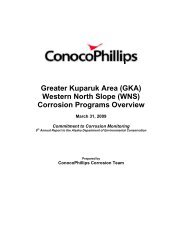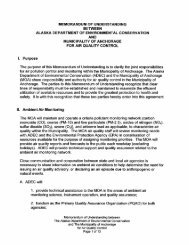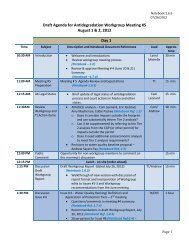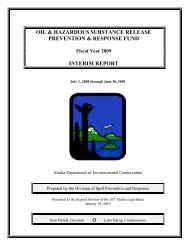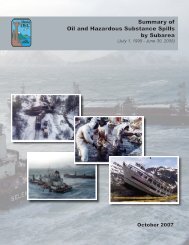2012 Ocean Ranger Guidebook Revision 3-7-12 - Alaska ...
2012 Ocean Ranger Guidebook Revision 3-7-12 - Alaska ...
2012 Ocean Ranger Guidebook Revision 3-7-12 - Alaska ...
You also want an ePaper? Increase the reach of your titles
YUMPU automatically turns print PDFs into web optimized ePapers that Google loves.
<strong>20<strong>12</strong></strong> <strong>Ocean</strong> <strong>Ranger</strong> <strong>Guidebook</strong> 3-7-<strong>12</strong><br />
Citations: 33 CFR 151.25 Oil Record Book.<br />
Figure 6-Bunker Receipt Example<br />
(a) Each oil tanker of 150 gross tons and above, ship of 400 gross tons and above other than an oil tanker, and manned fixed or<br />
floating drilling rig or other platform shall maintain an Oil Record Book Part I (Machinery Space Operations). An oil tanker of 150<br />
gross tons and above or a non oil tanker that carries 200 cubic meters or more of oil in bulk, shall also maintain an Oil Record<br />
Book Part II (Cargo/Ballast Operations).<br />
(b) An Oil Record Book printed by the U.S. Government is available to the masters or operators of all U.S. ships subject to this<br />
section, from any Coast Guard Sector Office, Marine Inspection Office, or Captain of the Port Office.<br />
(c) The ownership of the Oil Record Book of all U.S. ships remains with the U.S. Government.<br />
(d) Entries shall be made in the Oil Record Book on each occasion, on a tank to tank basis if appropriate, whenever any of the<br />
following machinery space operations take place on any ship to which this section applies—<br />
(1) Ballasting or cleaning of fuel oil tanks;<br />
(2) Discharge of ballast containing an oily mixture or cleaning water from fuel oil tanks;<br />
(3) Disposal of oil residue; and<br />
(4) Discharge overboard or disposal otherwise of bilge water that has accumulated in machinery spaces.<br />
(e) Entries shall be made in the Oil Record Book on each occasion, on a tank to tank basis if appropriate, whenever any of the<br />
following cargo/ballast operations take place on any oil tanker to which this section applies—<br />
(1) Loading of oil cargo;<br />
(2) Internal transfer of oil cargo during voyage;<br />
(3) Unloading of oil cargo;<br />
(4) Ballasting of cargo tanks and dedicated clean ballast tanks;<br />
(5) Cleaning of cargo tanks including crude oil washing;<br />
(6) Discharge of ballast except from segregated ballast tanks;<br />
(7) Discharge of water from slop tanks;<br />
(8) Closing of all applicable valves or similar devices after slop tank discharge operations;<br />
(9) Closing of valves necessary for isolation of dedicated clean ballast tanks from cargo and stripping lines after slop<br />
tank discharge operations; and<br />
197



